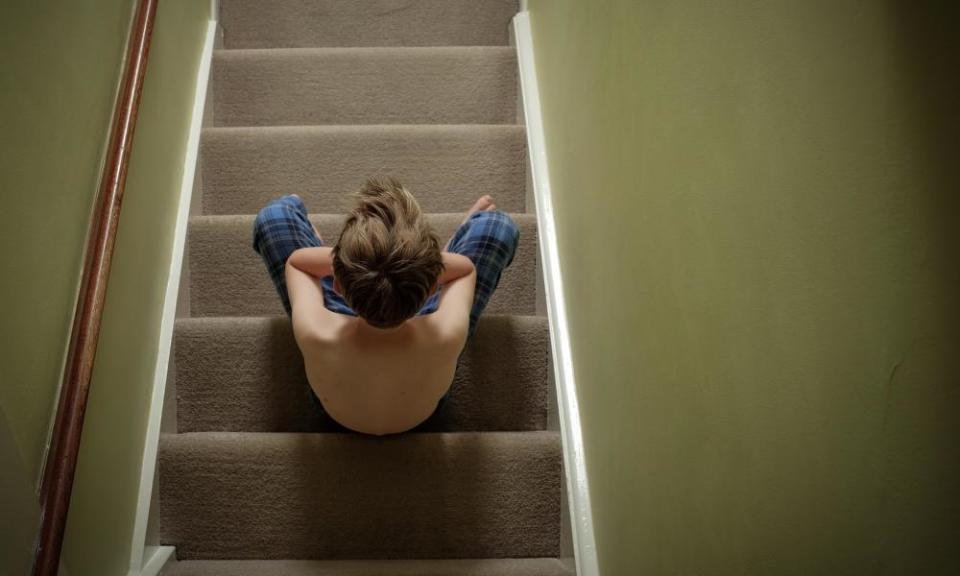Number of missing vulnerable children soars as safeguarding is cut during pandemic

Trafficked and unaccompanied children are going missing in “significant” numbers from the UK’s care system following a government move to dramatically reduce protection for youngsters, the Observer can reveal.
Three charities have documented an “alarming” series of cases since the beginning of lockdown and following legislation introduced in April that stripped most legal safeguards for vulnerable children during the coronavirus pandemic.
In one case, a teenage victim of human slavery appears to have been “retrafficked” back into the hands of criminals. Another 16-year-old vanished from care in London last month after their support package during lockdown was reduced.
Evidence has also emerged that younger children are being targeted by criminals with one 15-year-old in foster care among those approached by “groups of men” and asked to deliver packages in exchange for small sums of money.
Campaigners say concern over underfunded children’s services has escalated after the government introduced statutory instrument 445 on 23 April without parliamentary debate or public consultation.
The move removed or weakened 65 vital legal protections for youngsters in care, leaving already vulnerable children at risk of becoming destitute and exploited or retrafficked.
Even before the new legislation, trafficked and unaccompanied children were 30 times more likely to go missing than other children their age.
Related: Ministers are using coronavirus as an excuse to erode child protection | Carolyne Willow
It remains too early to calculate how many trafficked or child refugees have already gone missing, but charities believe the numbers could be sizeable. Previous research by Ecpat (Every Child Protected Against Trafficking) UK, which campaigns to end child exploitation, reveals that one in six unaccompanied or trafficked children goes missing from care.
Last year 3,651 unaccompanied children made applications for asylum with 4,550 children identified by UK authorities as potential victims of trafficking.
Patricia Durr, chief executive of Ecpat UK, said: “The young people we’ve identified have only come to light because charities like ours are plugging gaps in support and contact and could be just the tip of the iceberg.
“This has taken place against a backdrop of government underfunding of local authority children’s services, lack of mandatory training on child trafficking for professionals and changes to children’s social care regulations during the pandemic.”
The young people we've identified have only come to light because charities like ours are plugging gaps in support.
Patricia Durr, Ecpat UK
A spokesperson for the the Department for Education said the government’s intervention was “about safeguarding and protecting the welfare of vulnerable children” during the pandemic.
They added: “It is especially important that these children continue to receive the services and support they need, although the way in which this is delivered may need to change and adapt to reflect the current circumstances.”
Eleanor Brown, managing director of Caras, which supports south London asylum seekers, said:
“We have seen a notable increase in the number of young people who have gone missing or experienced homelessness as a result of the lack of contact they have had with statutory services. We are seeing some alarming outcomes.”
One case involves an unaccompanied child who arrived in the UK 12 months ago but whose face-to-face support was ended following the government’s new legislation. The 17-year-old has been missing from care for more than a month.
“He is not accessing payments from social care, leading to serious concerns about how he is surviving. He is not in touch with any statutory or support services,” said Brown.
Another, a 16-year-old, went missing at the end of last month after not receiving any visits from his social worker and becoming unhappy in foster care. When informed there were no alternatives available, the teenager disappeared to stay with “unknown friends”.
Another case involves a 20-year-old Albanian victim of trafficking whose weekly allowance was stopped shortly before lockdown and after surviving with no money to live on for three weeks disappeared.
“Any young person going missing from care is deeply troubling, but his history of trafficking coupled with the lack of basic means and reduced interaction of the local authority heightens the urgency of our concerns,” said Shpresa, a charity working with the Albanian community.
Esme Madil, from the Migrant and Refugee Children’s Legal Unit (MiCLU) which works with Shpresa, said: “Protecting children and young people should be a statutory duty. A child’s sanity and very survival should not depend on whether they are lucky enough to come toour attention.’
One Albanian teenager, now 19 but was trafficked into the UK aged 15, a child victim of trafficking, said he was struggling to with no support and just £45 a week to live on.
He said: “Friends of mine have disappeared - they live underground. The people who get you to work know you are illegal and they tell you after you have worked for the day to go or they will call the Home Office and get you sent back to Albania. The only other option is to sell drugs. I don’t want that life.”

